Ditapis dengan
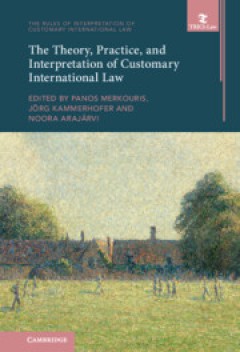
The Theory, Practice, and Interpretation of Customary International Law
This volume discusses the theory, practice, and interpretation of customary international law, as well as new developments and future research trajectories. Combining discussions of familiar concepts with new ideas, it is useful for researchers, scholars, and practitioners of international law. Volume ini membahas teori, praktik, dan interpretasi hukum kebiasaan internasional, serta perkemb…
- Edisi
- -
- ISBN/ISSN
- 978-1-009-02541-6
- Deskripsi Fisik
- 648 hlm.
- Judul Seri
- -
- No. Panggil
- -
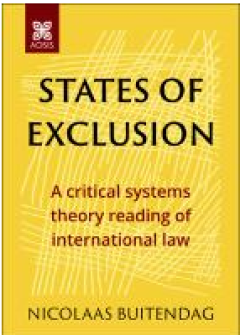
States of Exclusion: A Critical Systems Theory Reading of International Law
The theoretical underpinnings of public international law have taken the sovereign status of the nation-state for granted since the beginning of the modern era. After centuries of evolution in legal and political thought, the state's definition as a bounded territorial unit has been strictly codified. The legal development of the nation-state was an ideological project informed by extra-legal c…
- Edisi
- -
- ISBN/ISSN
- 978-1-77995-241-7
- Deskripsi Fisik
- 232 hlm.
- Judul Seri
- -
- No. Panggil
- -
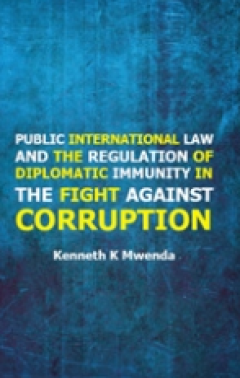
Public International Law and the Regulation of Diplomatic Immunity in the Fig…
Juxtaposed between anti-corruption initiatives and the principles of public international law pertaining to diplomatic immunity, this book critically examines the scope and limitations of diplomatic immunity in the fight against corruption. In a world where a very large number of States depend on richer nations for economic aid, it is inevitable that the old rule of non-interference in internal…
- Edisi
- -
- ISBN/ISSN
- 978-0-9869857-9-9
- Deskripsi Fisik
- 224 hlm.
- Judul Seri
- -
- No. Panggil
- -
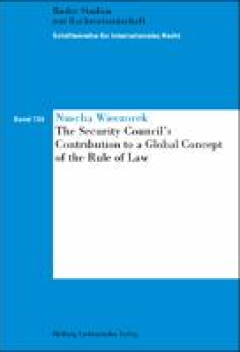
The Security Council's Contribution to a Global Concept of the Rule of Law
Beginning in the 1990s, the concept of the rule of law has been increasingly invoked in UN Security Council resolutions. The Security Council applies the principle of the rule of law as an instrument to fulfil its core mandate of restoring and maintaining international peace and security. Taking account of the heterogeneous composition of the Council and its far-reaching competences, this monog…
- Edisi
- -
- ISBN/ISSN
- 978-3-7190-4304-9
- Deskripsi Fisik
- 408 hlm.
- Judul Seri
- -
- No. Panggil
- -
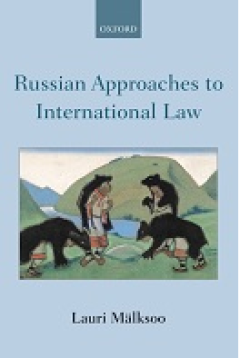
Russian Approaches to International Law
This book examines Russian approaches to international law from three different yet closely interconnected perspectives: history, theory, and recent state practice. The study uses comparative international law as a starting point and argues that in order to understand post-Soviet Russia’s state and scholarly approaches to international law, one should take into account the history of ideas in…
- Edisi
- -
- ISBN/ISSN
- 978-0-19-880804-6
- Deskripsi Fisik
- 241 hlm.
- Judul Seri
- -
- No. Panggil
- -
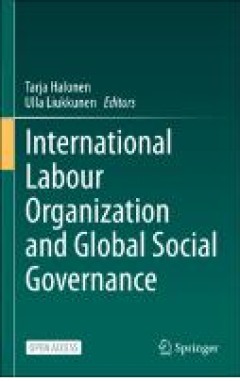
International Labour Organization and Global Social Governance
This open access book explores the role of the ILO (International Labour Organization) in building global social governance from multiple and mutually complementary perspectives. It explores the impact of this UN´s oldest agency, founded in 1919, on the transforming world of work in a global setting, providing insights into the unique history and functions of the ILO as an organization and the…
- Edisi
- -
- ISBN/ISSN
- 978-3-030-55400-2
- Deskripsi Fisik
- 151 hlm.
- Judul Seri
- -
- No. Panggil
- -

Research Handbook on International Law and Environmental Peacebuilding
This incisive Research Handbook addresses the growing recognition within the international law community that natural resource governance and environmental protection are crucial aspects of peace processes, both as a security imperative and as an opportunity for peacebuilding. Examining the impact of international normative and institutional frameworks on environmental peacebuilding, this Resea…
- Edisi
- -
- ISBN/ISSN
- 978-1-78990-692-9
- Deskripsi Fisik
- xii, 440 hlm.
- Judul Seri
- -
- No. Panggil
- 341.4 Jon r
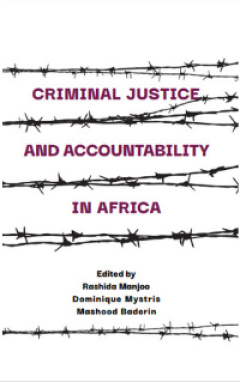
Criminal Justice and Accountability in Africa: Regional and National Developm…
Historically Africa has suffered from numerous conflicts which are typically addressed through international criminal law mechanisms and courts, but the need for a broader approach is both evident and demanded. This book pulls together the debates originating from the conference “Criminal Justice and Accountability in Africa: National and Regional Developments” and highlights the different …
- Edisi
- -
- ISBN/ISSN
- 978-1-991213-18-1
- Deskripsi Fisik
- 224 hlm.
- Judul Seri
- -
- No. Panggil
- -
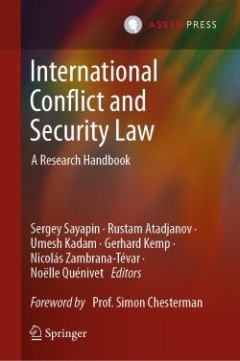
International Conflict and Security Law: A Research Handbook
This unique two-volume book covers virtually the whole spectrum of international conflict and security law. It proceeds from values protected by international law (Part I), through substantive rules in which these values are embodied (Part II), to international and domestic institutions that enforce the law (Part III). It subsequently deals with current challenges in the application of rules of…
- Edisi
- -
- ISBN/ISSN
- 978-94-6265-515-7
- Deskripsi Fisik
- 1488 hlm.
- Judul Seri
- -
- No. Panggil
- -
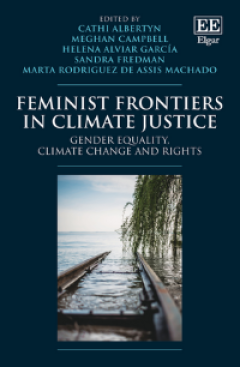
Feminist Frontiers in Climate Justice: Gender Equality, Climate Change and Ri…
Feminist Frontiers in Climate Justice provides a compelling demonstration of the deeply gendered and unequal effects of the climate emergency, alongside the urgent need for a feminist perspective to expose and address these structural political, social and economic inequalities. Taking a nuanced, multidisciplinary approach, this book explores new ways of thinking about how climate change intera…
- Edisi
- -
- ISBN/ISSN
- 978-1-80392-379-6
- Deskripsi Fisik
- 318 hlm.
- Judul Seri
- -
- No. Panggil
- -
 Karya Umum
Karya Umum  Filsafat
Filsafat  Agama
Agama  Ilmu-ilmu Sosial
Ilmu-ilmu Sosial  Bahasa
Bahasa  Ilmu-ilmu Murni
Ilmu-ilmu Murni  Ilmu-ilmu Terapan
Ilmu-ilmu Terapan  Kesenian, Hiburan, dan Olahraga
Kesenian, Hiburan, dan Olahraga  Kesusastraan
Kesusastraan  Geografi dan Sejarah
Geografi dan Sejarah